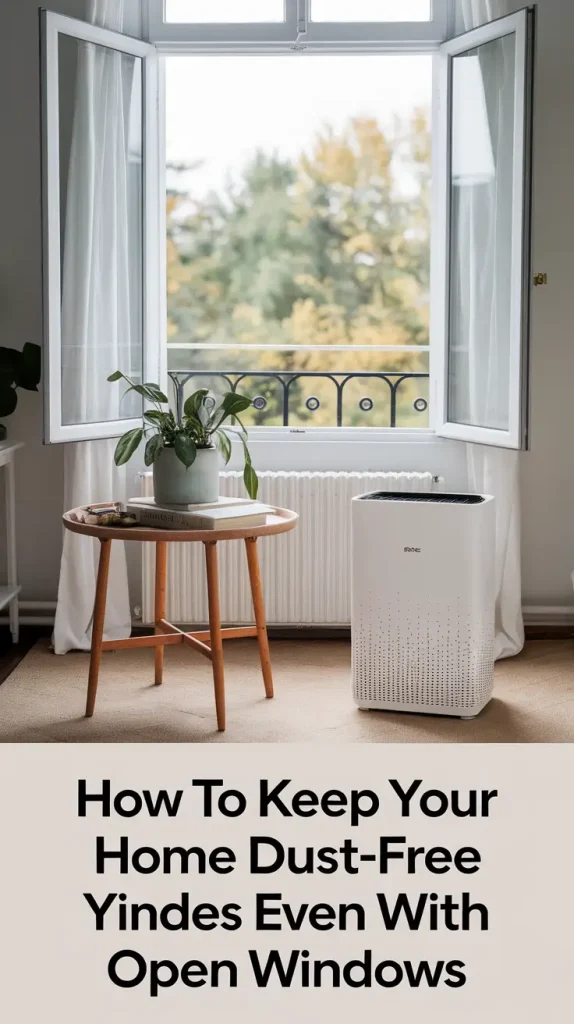How to Keep Your Home Dust-Free in 2025 Without Giving Up Open Windows
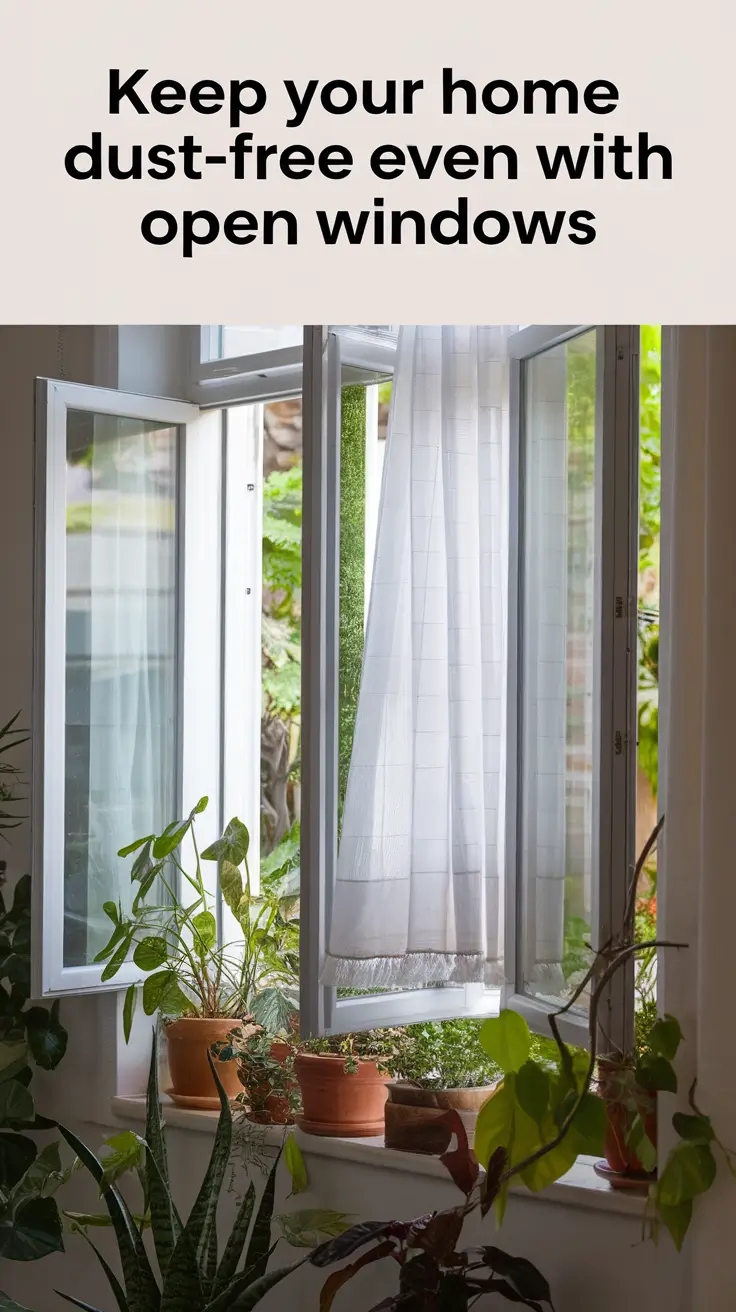
Your home gathers excessive dust at a fast rate when you allow windows to remain open. You’re not imagining things. The combination of air pollution and pollen levels and increased city traffic in 2025 will lead to higher air dust concentrations specifically within major U.S. cities including Los Angeles, New York and Dallas. That fine layer on your windowsill? The mixture consists of pollen and exhaust particles and textile fibers as well as microscopic debris.
The exposed window opening enables free passage of outdoor debris. The need for fresh air in healthy homes often results in decreased home cleanliness levels. People face a dilemma about sustaining their need for fresh air during the process of meeting cleanliness standards.
A guide containing affordable solutions exists to help everyone manage dust and pollen issues across all environments from urban streets to high pollen zones.
Who is this guide for? The article serves as a guide for allergy sufferers and pet owners and road side residents who want to sustain clean and fresh indoor environments.
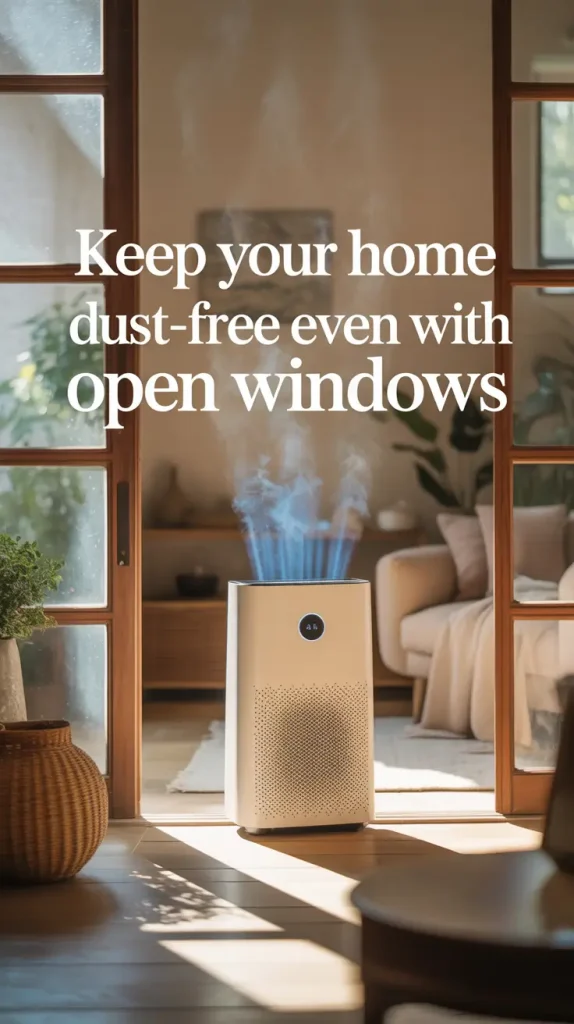
The Basic Principles of Dust Prevention: Where to Start
The selection of a new air purifier requires a correct foundation installation process. The following steps establish your base for dust prevention.
Declutter for Easier Cleaning
Fewer surfaces in an area result in less dust accumulation on the ground. A smart interior design uses minimalistic approaches.
- Reduce unnecessary items on shelves and floors.
- Store seasonal items in closed bins.
- Avoid fabric-heavy decor that traps particles.
Wet Cleaning Beats Dry Dusting
The application of dry cloths results in airborne dust distribution. The combination of microfiber and damp cloths proves more effective than dry cloths when it comes to dusting.
- Mop floors 2-3 times a week, especially entryways.
- Wipe down surfaces with a lightly dampened cloth.
- Use a vacuum with a HEPA filter on carpets and upholstery.
Don’t Forget Upholstery and Curtains
Fabrics are dust magnets. Regularly clean them:
-
- Vacuum sofas weekly.
- Wash curtains monthly.
- Replace heavy drapes with washable, lightweight options.
Pro Tip: Run a lint roller over lampshades and cushions twice a week to capture surface dust.
How to Ventilate Without Inviting Dust
Install Fine Mesh or Electrostatic Window Screens
Screens operate with different effectiveness when it comes to pest prevention and particle interception. Standard mesh stops bugs. The design of high-efficiency screens prevents dust particles and pollen from passing through the window opening.
- Look for mesh sizes below 200 microns.
- Electrostatic filters attract and hold particles.
- Wash them monthly to maintain performance.
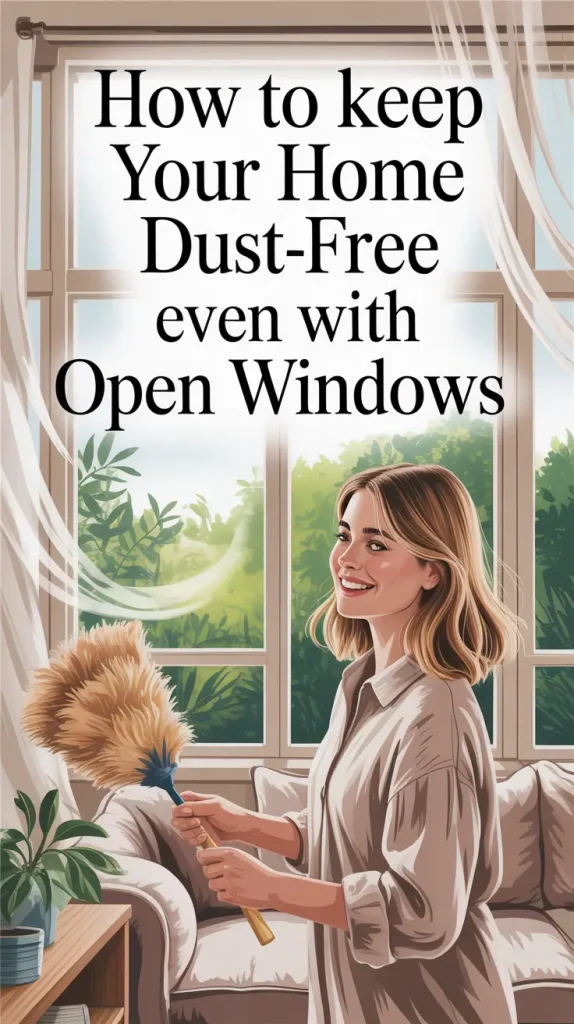
Choose Optimal Times for Window Opening
The atmosphere contains different levels of pollen and dust particles which change across the day.
- Open windows early morning (before 9 AM) or late evening.
- Avoid opening windows on dry, windy days.
- After rain is a great time to let in fresh air—less dust in the air!
Use Natural Cross-Ventilation Strategically
The maximum flow of fresh air must be achieved to stop indoor air from becoming stagnant.
- Open windows on opposite sides of your home.
- Use box fans near windows to push air out, not in.
- Limit the duration—15-20 minutes is often enough.
Smart Tech Solutions for a Cleaner Home
The world will soon experience groundbreaking dust control solutions which the market of 2025 will introduce. These products from the list deliver better value than competing alternatives.
Air Purifiers With HEPA and Carbon Filters
The HEPA filter system removes 99.97% of all particles that measure 0.3 microns in size. The carbon layers function as a dual system to eliminate air odors and VOCs.
| Model | Price | Room Size | Smart Features |
|---|---|---|---|
| Dyson Purifier Cool | $549 | Up to 800 sq ft | App, voice control |
| Levoit Core 400S | $219 | Up to 500 sq ft | Auto mode, app |
| Honeywell HPA5300B | $329 | Up to 600 sq ft | Quiet mode, timer |
Robotic Vacuums With Allergen Detection
Standard equipment on modern versions of these devices includes high-dust area sensors.
- Set zones via smartphone.
- Schedule daily runs in high-traffic areas.
- Look for models with washable HEPA filters.
Smart HVAC Systems
The installation of central air systems needs an upgrade which depends on your particular needs.
- Smart thermostats monitor air quality.
- Install MERV-13 filters for ultra-fine filtration.
- Enable fresh air intake with filtration add-ons.
Unexpected Hacks to Reduce Indoor Dust
The most effective results in this process stem from performing small specific daily habits.
Use Indoor Plants That Trap Particles
The air purification benefits of Peace Lily and Spider Plant and Bamboo Palm include trapping airborne particles with their other advantages.
Store Textiles in Closed Containers
Blankets, extra pillows, and towels? Storage of materials needs sealed bins along with vacuum bags.
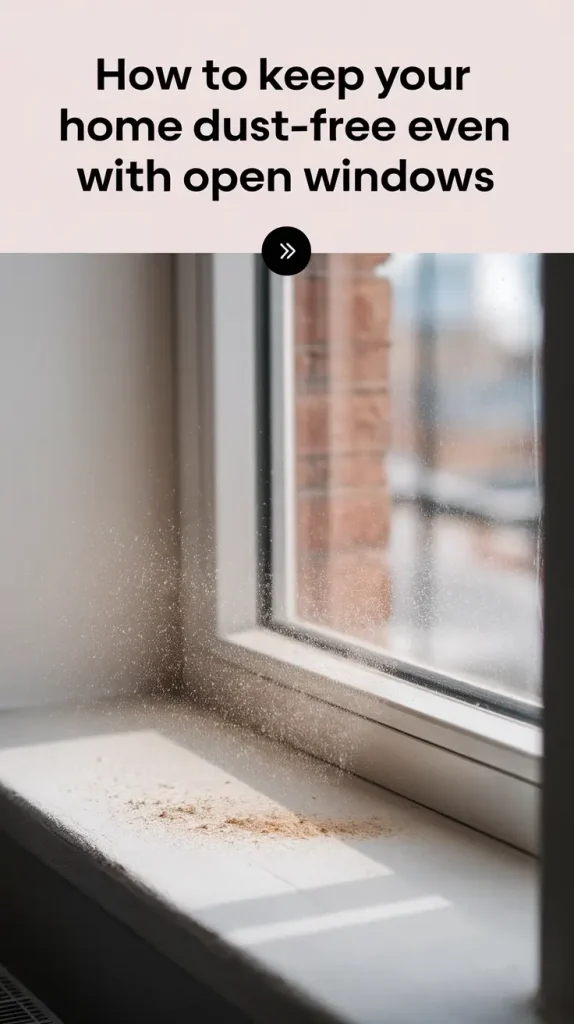
Clean Air Vents Monthly
Dust builds inside ducts. Every month:
- Remove vent covers and vacuum inside.
- Wipe down covers before reinstalling.
Humidify Strategically
Dust stays on the ground as long as indoor humidity levels remain between 40-50%.
-
- Use ultrasonic humidifiers in winter.
- Avoid levels above 60% to prevent mold.
Did You Know? Homes with consistent humidity levels see 25% less airborne dust.
Mistakes to Avoid When Fighting Dust
Standard mistakes that occur during your dust-free efforts can easily destroy your efforts despite your best attempts to prevent them.
- Using dry feather dusters: They just launch particles back into the air.
- Leaving windows open too long: Even filtered air brings dust if unregulated.
- Ignoring ceiling fans: Fan blades gather dust that circulates when turned on.
- Skipping under furniture: Hidden areas accumulate more dust than visible ones.
Quick Checklist of Bad Habits
Cleaning only once a week
Ignoring HVAC filter replacements
Using non-sealed storage containers
Not cleaning pet areas regularly
Ask yourself: Which of these habits am I guilty of?
Trends in Dust Control for 2025
Modern home care industry implements smart sustainable solutions as part of its development processes.
- Nanocoated textiles that repel dust and allergens
- Window filter systems that combine airflow and HEPA-like screens
- Portable environmental sensors tracking in-home air quality in real time
- Eco-friendly cleaning agents that reduce static and dust buildup
The products are already available for purchase through Amazon and Home Depot as well as major U.S. markets.
Conclusion: You Can Breathe Easy Even With Open Windows
Let’s recap what really works:
- Start with decluttering and wet cleaning.
- Use smart ventilation strategies with quality window screens.
- Invest in HEPA-enabled air purifiers and robotic vacuums.
- Add small daily habits like cleaning vents and using indoor plants.
- Avoid common mistakes that undo your hard work.
The elimination of dust from your home remains achievable for 2025 even though you prefer to let fresh air enter through open windows. The correct strategy along with consistent execution and modern technology enables people to achieve dust-free homes.
Your main concern at this moment is what new technique should be your first choice. Which method do you want to create yourself? Post your thoughts regarding this topic at the end of the page.
You should pass this guide to anyone who fights dust daily because they will gain from it.
